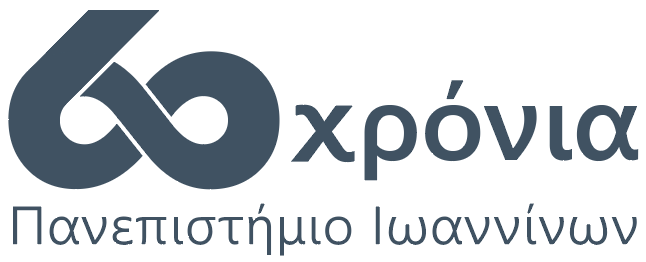The Computer & Telecommunication Systems Laboratory − CTSL − ctsl.dit.uoi.gr, has been covering the scientific fields of Computational Systems, Telecommunication Systems, and Biomedical Technology. The current research activities of the Laboratory focus on the Design and Architecture of Digital Devices and Systems, and the Testing and Reliability of Digital Systems. In the field of Biomedical Technology, research activity is concentrated on Biomedical Technology, Biostatistics, and Medical Informatics. Additionally, areas of activity include Mobile and Ubiquitous Computing Techniques, High-Performance Computing, Cooperative Telecommunication Systems and Technologies, Opportunistic Networks, Cellular, Mobile, and Wireless Communication Systems and Networks, as well as Heterogeneous Radio Technologies and Reconfigurable Networks. Research activities also involve Electromagnetic Compatibility, Radio Coverage Measurements, Field Measurements, Signal Propagation, Embedded Telecommunication Systems, Internet Services and Objects, Multimedia Services, Information Servers, and Integrated Platform Architectures.
The laboratory infrastructure includes digital oscilloscopes, RF generators, spectrum analyzers, network analyzers, PCB design systems, PCB soldering systems, development tools for DSP and FPGA, a Cascade Probe Station for on-wafer DC, AC, and RF measurements up to 40GHz, a Semiconductor Characterization System (I-V, C-V, Pulse I-V, LCR meter), DC and AC Current Sources, Source Meters, a Digital RF Signal Generator (250kHz-6GHz), Arbitrary/Function Generators, a Real-Time Spectrum Analyzer (DC-3GHz), a Vector Network Measurement System (10MHz-9GHz), a Broadband Electromagnetic Field Measuring System (5Hz-6GHz), a UV-visible reflection spectra measuring unit, and a MIMO measuring unit.
The laboratory infrastructure supports the measurement, certification, and calibration of electronic and telecommunication devices, circuits, systems, and equipment such as integrated analog and digital systems, antenna systems, and electronic circuits. Specifically, basic research and catalytic-technological applications are conducted in the fields of electrical characterization of micro-nano-electronic and optoelectronic devices, the design and characterization of array antennas & MIMO antennas, field measurements, EM radiation measurements, multi-antenna wireless communication systems, MIMO radio channel modeling, cooperative telecommunication systems, biomedical technology, medical informatics, digital processing and analysis of biomedical signals and medical images, wearable systems and devices, and intelligent information systems for automatic medical diagnosis.
The Laboratory aims to meet the research and teaching needs of the Department at undergraduate, postgraduate, doctoral, and continuing education levels, participate in developmental and research projects, disseminate the results, and organize scientific lectures, workshops, seminars, symposia, and conferences. Additionally, the Laboratory aims to collaborate with academic institutions, research centers, businesses, and organizations, where scientific goals coincide, align, or complement those of the Laboratory, and provide services to organizations, companies, and individuals of any legal form.
Members of the Laboratory collaborate with numerous research groups in Greece and abroad and, within the framework of these collaborations, provide the Laboratory's research facilities and their scientific expertise. Furthermore, through the University of Ioannina's collaborations within European and nationally funded
projects, the department's research team has acquired extensive experience in the characterization of micro-nano-electronic devices, optoelectronic devices, the design and characterization of array antennas & MIMO antennas, MIMO radio channel modeling, medical image processing, decision support systems, data mining, biomedical data analysis and processing methods, knowledge object representation and retrieval systems, and has also gained sufficient experience in clinical trials and evaluations of various experimental biomedical systems. Members of the research team have participated as software engineers, researchers, and technical managers in European and national projects focusing on intelligent information systems, healthcare systems, early diagnosis models, medical applications both within and outside hospitals, etc.
he Laboratory has participated/is participating in various research projects, including:
Development of methodologies and embedded security solutions for Internet of Things technologies in electronic health services - MELITY.
Hospital care monitoring system using wireless sensor networks - HUMORIST.
Automated system for measuring liver cell degeneration in biopsy images - xBalloon.
Smart Glove for the Assessment of Motor Condition in Patients with Neurodegenerative Diseases - SmartGlove.
Development of diamond-like carbon thin film technology for applications in electronic devices and flat-panel displays, PENED99, 2000-2001.
External expert services for the development of an operational plan for the Intelligent City of Ioannina Municipality.
Development of an operational plan for the Smart City of Arta Municipality, resulting in a series of scientific publications, participation in national and international scientific conferences, and patents. .





